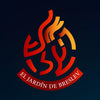
The great purpose of the exit from Egypt
"Parasha Hol Hamoed Pesach 5780"
"Speak to the children of Israel and tell them: There are specific times (in the calendar) that you must celebrate as Feasts sacred to Hashem. These are my festivals" (Vaikrá-Leviticus 23, 2)
Our sages say: "Shabbat and holidays were not given to Israel, but to dedicate himself to the study of Torah" and when the person consecrates himself studying it without wasting his time in superfluous vanities, he immediately deserves to enjoy the Torah and receives the Neshama Yeterá (a special soul) because the Torah is called Ner (luminary), as is said (Mishlé-Proverbs 6, 23) " A Luminary is the Precept and the Torah is light ” and the soul is also called Ner (luminary), as it says (Proverbs 20, 27)“ Hashem's Luminary is the soul of man ” , and when the person studies Torah, his soul is renewed by receiving a new, more resplendent spirit, which was created especially by the merit of studying Torah at festivals, which contains the sanctity of the feast .
It is known that whoever dedicates his time in the Torah when others are gathered in talks and dialogues without spiritual sense, wasting precious time, then receives the Neshama Yetterá since he took advantage of the moment of Yom Tov (Festival) in which Hashem is closer than in the rest of the days of the year.
It is understood then that the Neshama Yeterá (the special soul) that we manage to acquire on Yom Tov is not the same as that of Shabbat which is received by everyone, but must be achieved through the study of Torah; For this reason, when Yom Tov ends, it is not blessed by the aroma, as is customary at the end of Shabbat (the Blessing that is done in the Havdala, 'b'Samim') since not everyone says goodbye to their special soul.
It humbly seems to me that this is precisely why the Torah linked the theme of the exodus from Egypt with the festivities, to be clear that the meaning of leaving Egypt is for the People of Israel to receive the Torah, study it and fulfill it. , and when dedicating themselves to the Torah in the festivities, these become "Moadé Hashem" (Hashem moments) and not moments for them, because the festival is for those who deserve to be united with Hashem and not for those who waste time in the parties in vanities not complying with the phrase "Mikre Kodesh" (they will be called sacred) believing that the festivities are simple moments of leisure or family gatherings to eat and meet, but on the contrary, the Torah calls the festivities " Moadé HaShem ”(moments of Hashem) times of spiritual overcoming, where what we relive is the greatness of Hashem, remembering the great miracles that he did with our ancestors, making it clear that they are not“ moments of man ”like so n the pagan festivals that only remember what happened to them and that is why they celebrate it by eating, drinking or other excesses, without spiritual content.
We see the meaning of all our festivities especially on Pesach, since Hashem freed us because the People came out ready to receive the Torah, and since the exodus they began to comply with the Precepts by receiving this great Pesach Precept on them, who agreed to fulfill it for all generations.
All of our festivals have the same meaning, since they were all called "Moadé HaShem" "moments of HaShem".
Although our Sages say that Pesach is our greatest vocation, since all the beginnings come from it, since it was the beginning of the Jewish nation, and the commemoration of our freedom, the recognition of our Creator, the Unique Di 'You, who is always aware of us, who freed us and will free us!
The Garden of Breslev
The Garden of Breslev recommends:
